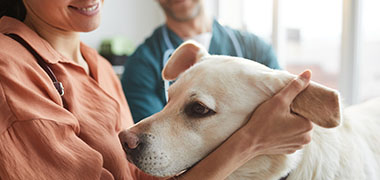
This role has a low level of AI exposure. Core skills such as adaptability, social intelligence, and complex physical tasks remain beyond the capabilities of current AI.
Explore all careersA Veterinary Emergency Nurse supports the treatment of animals in critical situations, assisting with surgeries and monitoring their recovery.
Get qualified to work as a Veterinary Emergency Nurse with a course recognised across Australia. Speak to a training provider to learn more.
Browse occupations related to Veterinary Emergency Nurse
In Australia, a full time Veterinary Emergency Nurse generally earns $1,160 per week ($60,320 annual salary) before tax. This is a median figure for full-time employees and should be considered a guide only. As you gain more experience you can expect a potentially higher salary than people who are new to the industry.
 Courses.com.au Team
Courses.com.au Team
The number of people working in this role has increased over the last five years. There are currently 12,100 veterinary nurses working in Australia and many of them specialise as a Veterinary Emergency Nurse. Veterinary Emergency Nurses can find work in all regions of Australia.
Source: Australian Government Labour Market Insights
 Courses.com.au Team
Courses.com.au Team
A Diploma of Veterinary Nursing (Emergency and Critical Care) is an ideal qualification if you’re thinking of becoming a Veterinary Emergency Nurse. This course covers topics including preparing for a veterinary emergency, performing emergency life saving procedures on animals and delivering follow up care.
 Courses.com.au Team
Courses.com.au Team



A Veterinary Emergency Nurse assists with the treatment of animals in emergency situations such as an accident or a life threatening medical condition. You might help veterinarians with surgical procedures or monitor animals during their treatment. You may have to prepare veterinary equipment or medicine or get animals ready for surgery. Veterinary Emergency Nurses will usually treat domestic pets but you might also work with native wildlife or wild animals in captivity.
Veterinary Emergency Nurses need to be flexible and may have to work after hours shifts. You’ll need to enjoy working with animals and be passionate about their care. Animals in emergency situations can be distressed or aggressive so you’ll need to be good at handling challenging animal behaviours. You’ll need to be able to follow directions and communicate with your team and with animal owners.